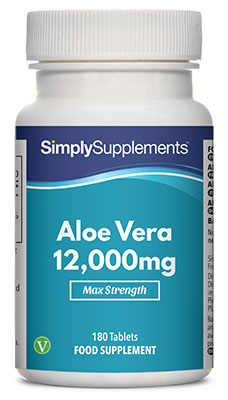Acid Reflux Causes & Remedies

Approximately one-third of adults experience acid reflux, also sometimes known as “heartburn”, at some point. As the name suggests, acid reflux occurs when stomach acid travels back up the oesophagus. This causes a burning sensation around the chest. Severe heartburn may also be felt in the throat, jaw, arms or back. In addition to a tightening pain around the chest, many people suffering from reflux also taste acid in the mouth or throat. Fortunately, we know more than ever before about the causes of acid reflux and remedies that can help to reduce the frequency and severity of symptoms.
Causes of Acid Reflux
The human stomach contains a potent mixture of chemicals that are designed to both help break down food into their components as well as neutralise potentially harmful pathogens. While we tend to think of stomach acid as one singular liquid it actually normally comprises a cocktail of ingredients, the most common of which is hydrochloric acid.
The level of hydrochloric acid in the stomach does not remain constant, but instead varies over time in response to our intake of food. Levels typically rise soon after eating a meal and fall again once digestion ceases. Normally this acid is held within the stomach, where a circular muscle known as the “lower oesophageal sphincter” (or LES) tightens to prevent it spilling out. Sometimes, however, this finely-tuned process doesn't work quite as it should. When this happens, the condition we know as acid reflux may arise. Based on this description of how the stomach works, it should hardly be surprising that there are two particularly common causes of acid reflux…
Faulty Sphincter
 Possibly the most common cause of acid reflux is a sphincter that is too relaxed, allowing acid to leach out. Unlike your biceps this is not a muscle that you can “strengthen” with exercise, however, we know a number of elements can lead to sphincter muscles relaxing. Some of the most common of these are:
Possibly the most common cause of acid reflux is a sphincter that is too relaxed, allowing acid to leach out. Unlike your biceps this is not a muscle that you can “strengthen” with exercise, however, we know a number of elements can lead to sphincter muscles relaxing. Some of the most common of these are:
● Alcohol consumption
● Smoking tobacco
● Pregnancy
Pregnancy is an interesting factor here, because experts believe that the hormonal changes experienced by pregnant women lead to a more relaxed sphincter. This is perfectly natural and normal, though some women worry about the appearance of acid reflux during pregnancy. At present there is no evidence to suggest that its appearance is an indication of any issues with the pregnancy.
Note also that acid reflux becomes more common as we age as the lower oesophageal sphincter naturally becomes weaker.
Excessive Production of Gastric Juices
Alternatively some people produce much larger volumes of gastric juice than the rest of us. Unsurprisingly, when there is more acid present it becomes more likely that a small amount will succeed in escaping.
It is interesting to point out that acid reflux often occurs within 60 minutes of eating a meal. This is because the process of eating encourages the parietal cells of the stomach to begin producing additional acid in readiness for your meal to arrive.
Remedies for Acid Reflux
A wide range of different prescription medications have proven to be effective in helping to treat recurring cases of acid reflux. The most common of these are known as “protein pump inhibitors”) or PPIs. They are designed to limit the volume of acid that your stomach produces, leading to a lower incidence of discomfort. However, there are also a variety of more natural solutions that can help. Here are some of the most effective remedies for acid reflux:
Take Aloe Vera
Aloe vera has long been used for its ability to coat and line the digestive tract. For example, many people suffering from irritable bowel syndrome (IBS) rely on a daily dose of aloe vera to calm any irritation or inflammation that leads to feelings of bloating and discomfort.
The gel-like coating that aloe vera leaves on the inner surface of the digestive tract is also believed by many to prevent the burning sensation otherwise experienced when stomach acid washes up the oesophagus.
One study on acid reflux assessed the impact it had on common symptoms of acid reflux including acid regurgitation, belching and flatulence together with the trademark burning sensation. They found that aloe vera “reduced the frequencies of all… symptoms, with no adverse events”.
Give Up Smoking
There are hundreds of chemicals in cigarette smoke that can irritate the lining of the oesophagus and cause heartburn. Furthermore, it is believed that tobacco smoke also serves to relax the sphincter muscle and so increases the chances of stomach acid making its way up into the oesophagus to begin with.
If you're unable to give up smoking entirely, then try to limit your intake around mealtimes, when stomach acid volumes tend to be highest, and before bed where the supine position may increase the risk of reflux.
Limit Your Alcohol Intake
 Just like cigarette smoking, alcohol may numb the sphincters ability to close tightly as required. If you are unlucky enough to suffer from acid reflux, therefore, you would do well to consider cutting down on your alcohol intake. This is especially so around mealtimes.
Just like cigarette smoking, alcohol may numb the sphincters ability to close tightly as required. If you are unlucky enough to suffer from acid reflux, therefore, you would do well to consider cutting down on your alcohol intake. This is especially so around mealtimes.
Limit Your Painkiller Use
Many of us use nonsteroidal anti-inflammatories like ibuprofen without a second thought. For acid reflux sufferers, however, it is important to understand that such pharmaceuticals can negatively impact the ability of the sphincter to contract properly. As a consequence, try not to use painkillers for a few hours either side of eating.
Cut Down on Caffeine
The caffeine found in coffee and tea can lead to spasms in the sphincter muscle, so are best avoided around mealtimes. Instead consider exchanging them for non-acidic fluids like water or even milk which can help to coat the inner surface of the digestive system.
Eat Smaller Meals
It is generally recognised that large meals can result in more gastric juices being secreted, worsening the overall impact on acid reflux. Instead of feasting on one giant meal, instead consider eating more modest meals, even if you must do so more regularly. As acid reflux tends to be most common in the evenings, particularly when trying to get to sleep, try to ensure that you at least avoid lavish dinners, instead swapping to something more modest.
Eliminate “Trigger” Foods
Some foods seem to be far more likely to cause acid reflux. Common perpetrators include spicy foods and carbonated drinks. Acidic foods like tomatoes and citrus fruits are also typically best avoided by sufferers.
If you suffer from recurring acid reflux it can be beneficial to keep a food journal, noting down all the food and drink that you consume. This can then be cross-referenced with episodes of acid reflux to identify which items seem particularly likely to trigger an attack for you.
Eat Earlier
Lying down to sleep is one of the most common triggers for bouts of acid reflux. This makes perfect sense, of course, as lying horizontally increases the chances of acid gently leaching out of the stomach. Many experts recommend that you should aim to wait at least 2-3 hours between eating your evening meal and lying down to bed, in order to allow acid levels to fall to more modest levels.
Sleep at an Incline
If lying down in a horizontal position can increase the risk of acid reflux then a beneficial solution is to sleep at an incline. Try using extra pillows to create this slightly elevated position.
Maintain a Healthy Weight
 Overweight individuals are more likely to suffer from acid reflux. This is because extra weight means that more pressure is placed on the stomach causing the contents to be forced back up the oesophagus.
Overweight individuals are more likely to suffer from acid reflux. This is because extra weight means that more pressure is placed on the stomach causing the contents to be forced back up the oesophagus.
Conclusion
As we can see, there are a whole host of different home remedies that you can try for your acid reflux. Experiment with the various options until you find a combination that allows you to enjoy your food without the worry of that burning sensation soon afterward. Lastly, please note that if you suffer from heartburn more than twice a week then you should consult with your doctor, especially if it is accompanied by pain in the arms, neck, or back. Frequent heartburn can also lead to other complications, including ulcers in the oesophagus.

Sources:
https://www.nature.com/articles/ajg2003349
http://www.sciencedirect.com/science/article/pii/S0254627215301515
http://onlinelibrary.wiley.com/doi/10.1046/j.1440-1746.2000.02051.x/full
https://www.ncbi.nlm.nih.gov/pmc/articles/PMC3217736/
http://onlinelibrary.wiley.com/doi/10.1111/j.1365-2036.2005.02654.x/full

 Nicole
Nicole 























